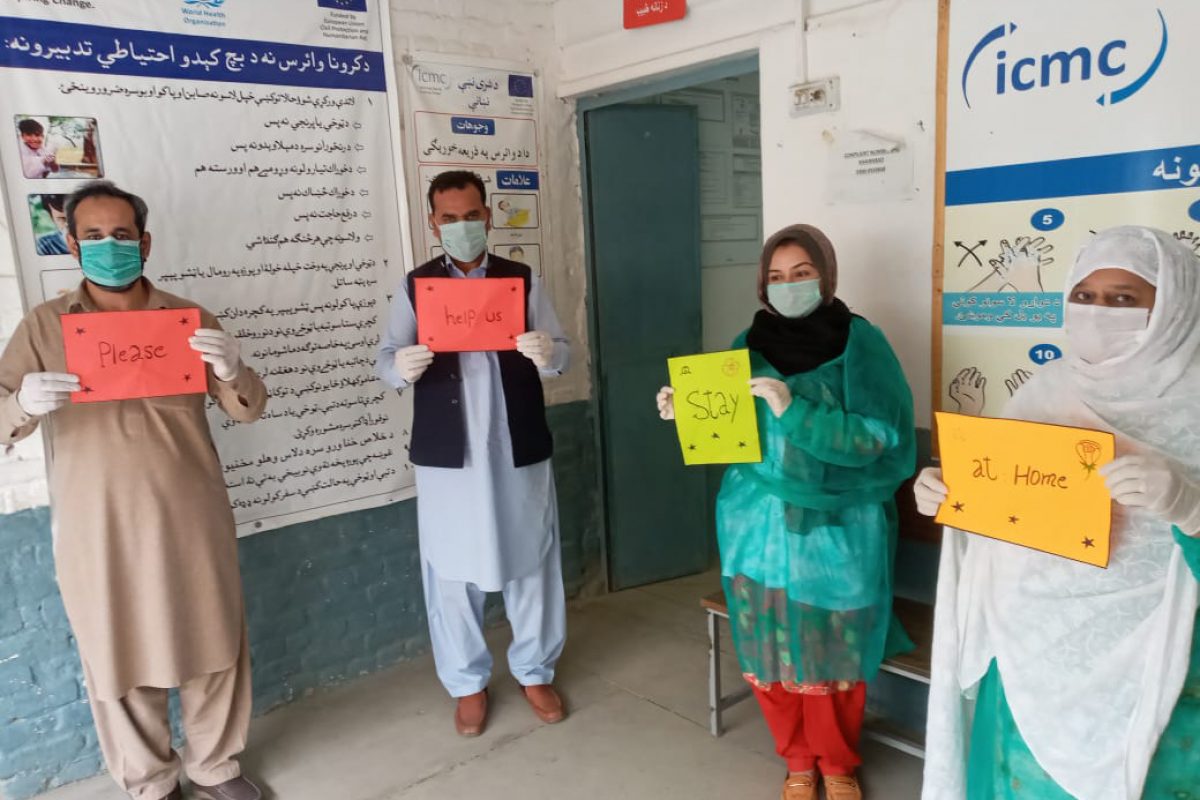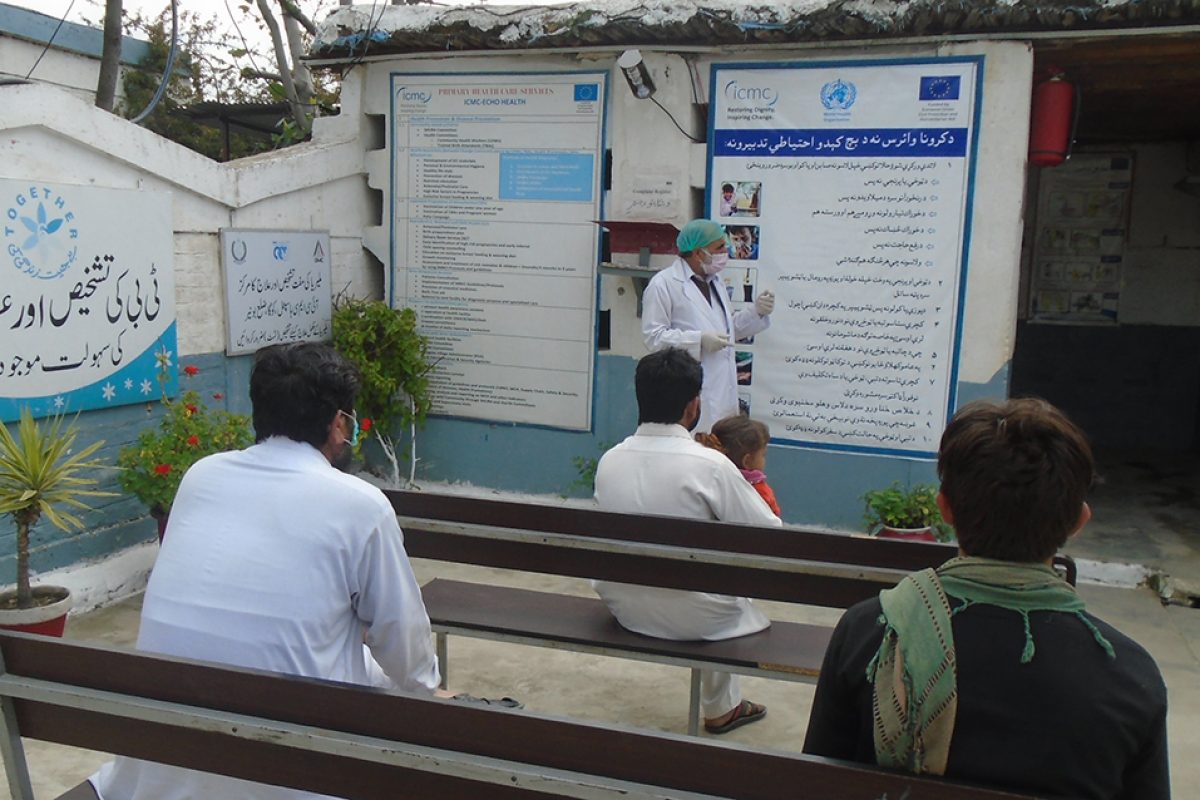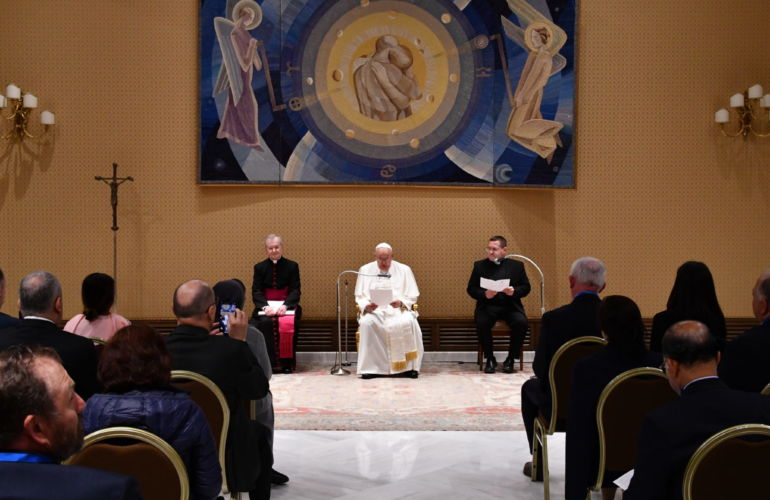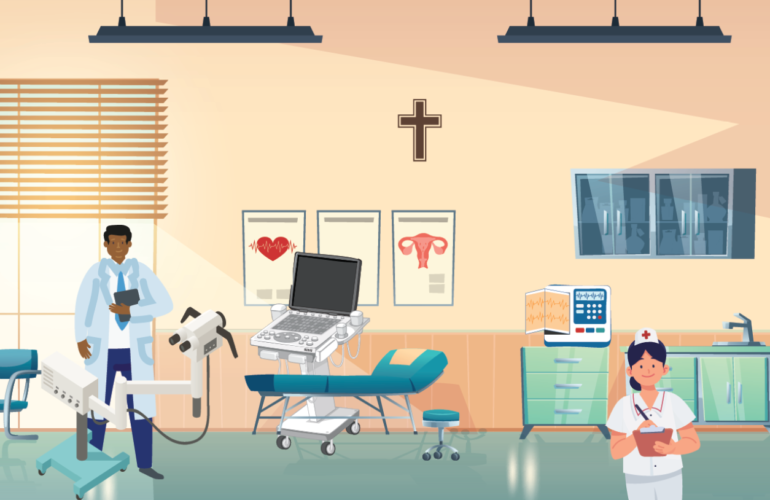ICMC Pakistan Redoubles Efforts in the Fight Against COVID-19

ICMC Pakistan’s services, including the operation of medical clinics in 11 refugee camps, have been exempted from the nationwide COVID-19 lockdown. As ICMC adapts its activities to the new reality, it acknowledges that a surge in cases will require new resources.
Since 23 March, a nationwide COVID-19 lockdown has brought most of Pakistan’s activities to a halt. However, the government has requested that the International Catholic Migration Commission continue operating in refugee villages spread across the Northern region of Peshawar, near the Afghan border. The lockdown is currently set to end on 14 April.
“Services are open and staff present in our 11 health clinics in refugee villages,” says Dr. Azad Wali Khan, who heads ICMC Pakistan’s health services. The government is taking charge of all cases of COVID-19, and a special protocol is in place so that refugees who present symptoms are referred to government hospitals. ICMC is working closely with the government and with the UN Refugee Agency (UNHCR) in Peshawar to carry out measures to contain the spread of the virus.
Until now, there have been no diagnosed cases of the new coronavirus in refugee villages. However, Dr. Azad fears that this is due to lack of testing, and that the actual number might be quite high.
To fight the spread, ICMC has been conducting small group awareness-raising trainings. It has also partnered with community leaders, mosque associations, and student/teacher programs to ensure that factual information on the disease reaches everyone in the community.
“Refugees’ compliance with the lockdown has been very positive,” says Dr. Azad. Refugees understand the danger that the new virus poses, and they stay at home as much as possible. ICMC’s medical clinics have seen a decrease in visits as refugees avoid non-emergency consultations.
“On the other hand,” adds Dr. Azad, “refugees are currently very scared, both of the virus and of what law authorities might do if they find them outside their homes.” In normal times, ICMC’s clinics daily provide healthcare services to 20 to 30 refugees.
Getting Ready for the Storm

As Pakistan’s cases of coronavirus begin to climb, hospitals may struggle to face the pandemic. ICMC staff are strategizing on how to respond the needs of Pakistanis living in the area of the refugee villages, in case hospitals become increasingly unable to respond to the growing needs of the local population and pharmacies in case the prices of medical supplies are drastically increased. In such an eventuality, local community members might flood the ICMC clinics intended to serve the refugees. Although operating in refugee villages, these clinics are open to anyone in the area and offer free-of-charge consultations.
“Between 20% and 25% of the population in Pakistan live below or on the poverty line,”explains Dr. Azad. With very few organizations providing healthcare services to the country’s most vulnerable, he fears that ICMC will be strained to respond to the demand for treatment if the virus continues to spread and government hospitals dismiss patients afflicted with other ailments.
“We can’t divert all our funds towards fighting COVID-19,” says Dr. Azad. ICMC’s other life-saving activities in Pakistan cannot be abandoned and have also become more complex to carry out, he explains. The reduced mobility for refugees and staff has complicated many activities, including food support to daily wage workers who now find themselves unemployed because of the lockdown. ICMC’s project in support of health clinics in Pakistan is implemented in partnership with Humanity and Inclusion and with the support of European Civil Protection and Humanitarian Aid Operations.
ICMC’s medical staff has adapted its practices to the new threat. They are taking additional preventive measures, including social distancing and increased use of personal protective gear and disinfectant, which they have even produced in-house, given its shortage in the market.
However, they worry about running out of protective equipment. Current supplies are expected to last up to a month. New supplies are more difficult to acquire because of the lockdown, and additional funds are necessary to cover this unexpected expense.
Make a difference and support ICMC’s continuing service to migrants and refugees. Donate Today


